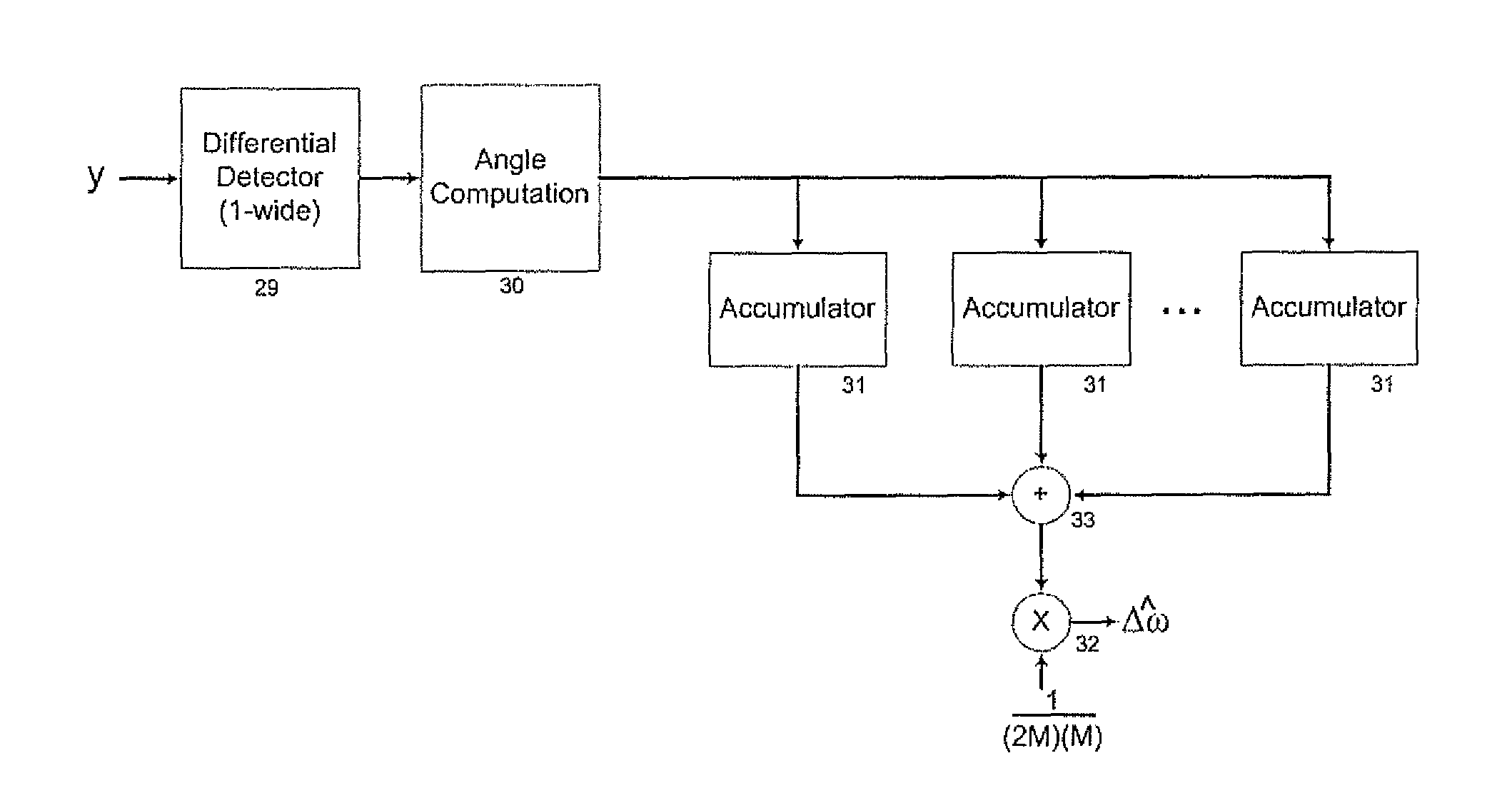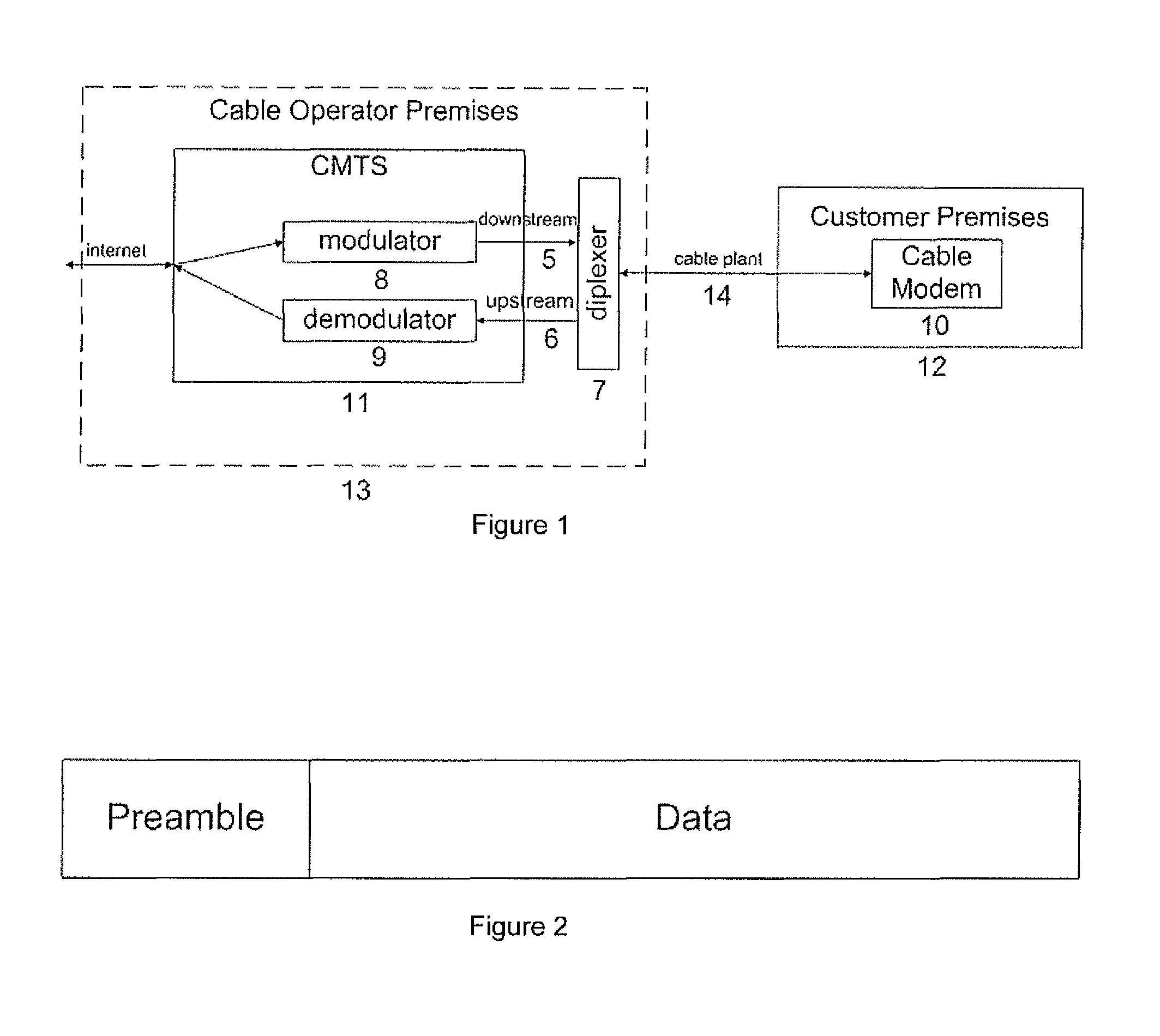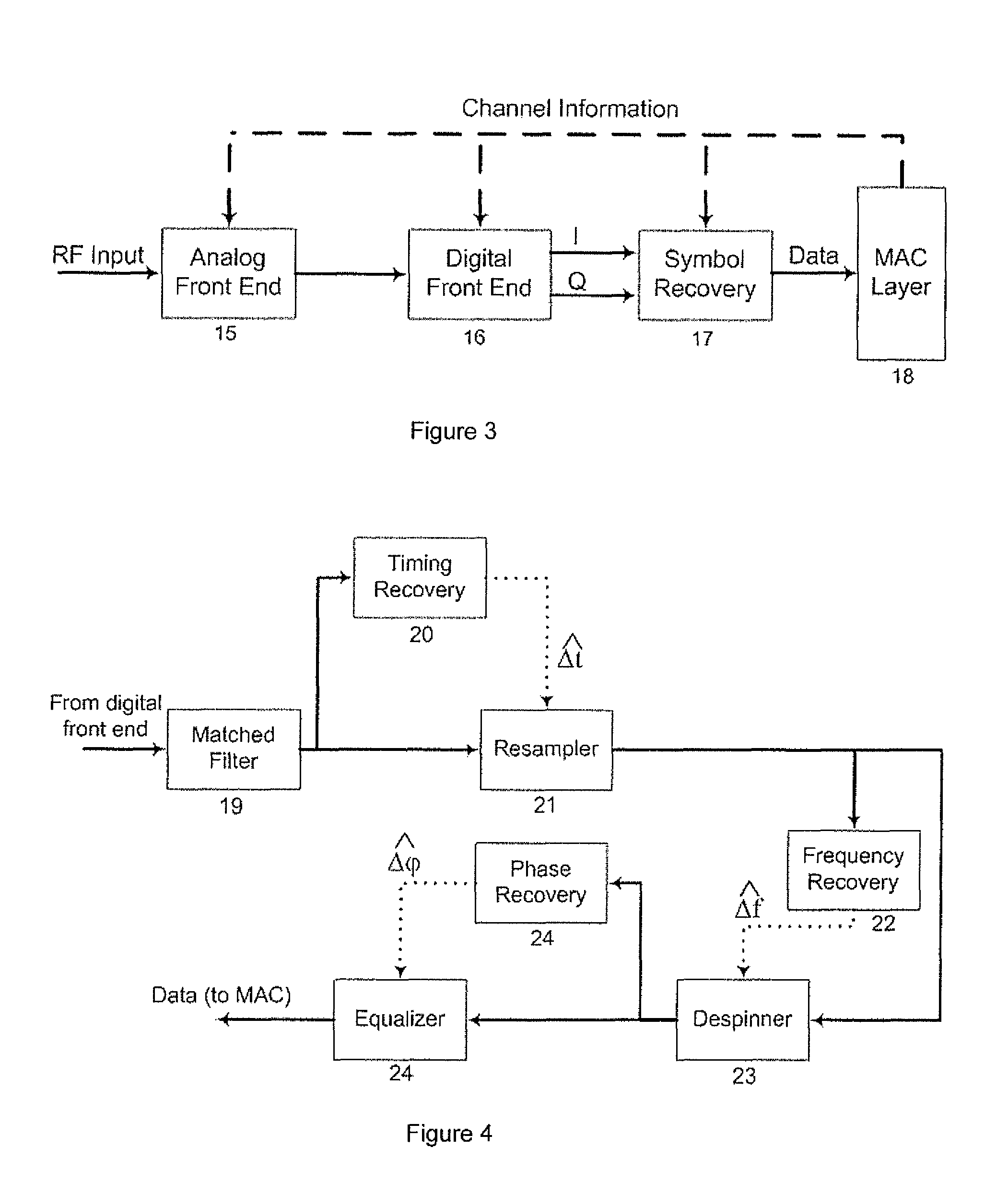Frequency offset estimator for upstream cable signals
a technology of frequency offset and cable signal, which is applied in the direction of carrier regulation, transmission, modulated carrier systems, etc., can solve the problems of large and complex equipment, significant bandwidth competition on the upstream channel, and complicated task of the receiver in the communication system, so as to increase the efficiency of the upstream channel
- Summary
- Abstract
- Description
- Claims
- Application Information
AI Technical Summary
Benefits of technology
Problems solved by technology
Method used
Image
Examples
Embodiment Construction
[0055]As shown in FIG. 1, the cable network includes a plurality of Cable Modems 10 at customer premises and a Cable Modem Termination System 11. The CM 10 is a low-cost, mass-produced device that is used by each customer 12 to connect to the network, while the CMTS 11 is a large and complex piece of equipment residing on the cable operator's premises 13. Traffic flowing from the CMTS to the CMs is known as downstream traffic. In contrast, the transfer of data from a single CM to the CMTS is referred to as upstream traffic. FIG. 2 shows the construction of a packet of data communicated from the CM 10 to the CMTS 11.
[0056]The high level structure of the DOCSIS upstream receiver 9 in which the present invention resides is shown in FIG. 3. As indicated in the figure, a radio frequency (RF) signal enters the receiver from the upstream output 6 from the diplexer 7. Inside the receiver, the signal is first passed to an analog front end module 15, which bandlimits the incoming signal throu...
PUM
 Login to View More
Login to View More Abstract
Description
Claims
Application Information
 Login to View More
Login to View More - R&D
- Intellectual Property
- Life Sciences
- Materials
- Tech Scout
- Unparalleled Data Quality
- Higher Quality Content
- 60% Fewer Hallucinations
Browse by: Latest US Patents, China's latest patents, Technical Efficacy Thesaurus, Application Domain, Technology Topic, Popular Technical Reports.
© 2025 PatSnap. All rights reserved.Legal|Privacy policy|Modern Slavery Act Transparency Statement|Sitemap|About US| Contact US: help@patsnap.com



